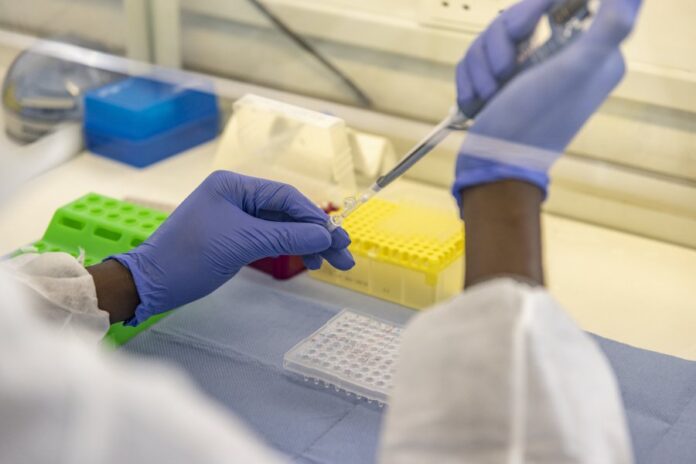The government, through the Science, Technology and Innovation Secretariat (STI), is set to train 10,000 vaccine scientists by 2040 in a bid to strengthen the country’s local knowledge base and improve the ability to create and produce vaccines within the country.
Brenda Nakazibwe, Pathogen Economy team leader at STI, said the Secretariat is dedicated to advancing research and development, especially in vaccine innovation.
“As our major focus as Science, Technology, and Innovation Secretariat is advancing research and development, particularly in vaccine development, Uganda is setting an ambitious goal to train 10,000 vaccine scientists by 2040. This initiative is crucial for building our local expertise and enhancing our capacity to develop and manufacture vaccines domestically,” she said.
Nakazibwe made these remarks on September 18, 2024, at the official launch of the Crimean-Congo Hemorrhagic Fever (CCHF) study by the Uganda Virus Research Institute (UVRI) and LSHTM Uganda Research Unit at the Lake Victoria Hotel Entebbe.
Crimean-Congo Haemorrhagic Fever (CCHF) is a severe zoonotic viral disease in humans and animals that has triggered outbreaks across Europe, Africa, and the Middle East.
The Director of the UVRI, Proff. Kaleebu Pontiano, who was the Chief Guest, informed the attendees that the trials being conducted are very essential in advancing in the future of vaccine development and testing.
“First we will create essential immunogenicity for the vaccine, and next we will build the adenovector CCHFV candidate by incorporating these immunogens,” Kaleebu said.
He stated that in recent years, UVRI has effectively conducted numerous clinical trials, establishing solid groundwork for the future of vaccine development and testing in Uganda.
The Crimiean Congo Hemorrhagic Virus was first seen in Europe in 1944. It affects both humans and animals, is spread mainly by ticks, and has a 11% mortality rate.















